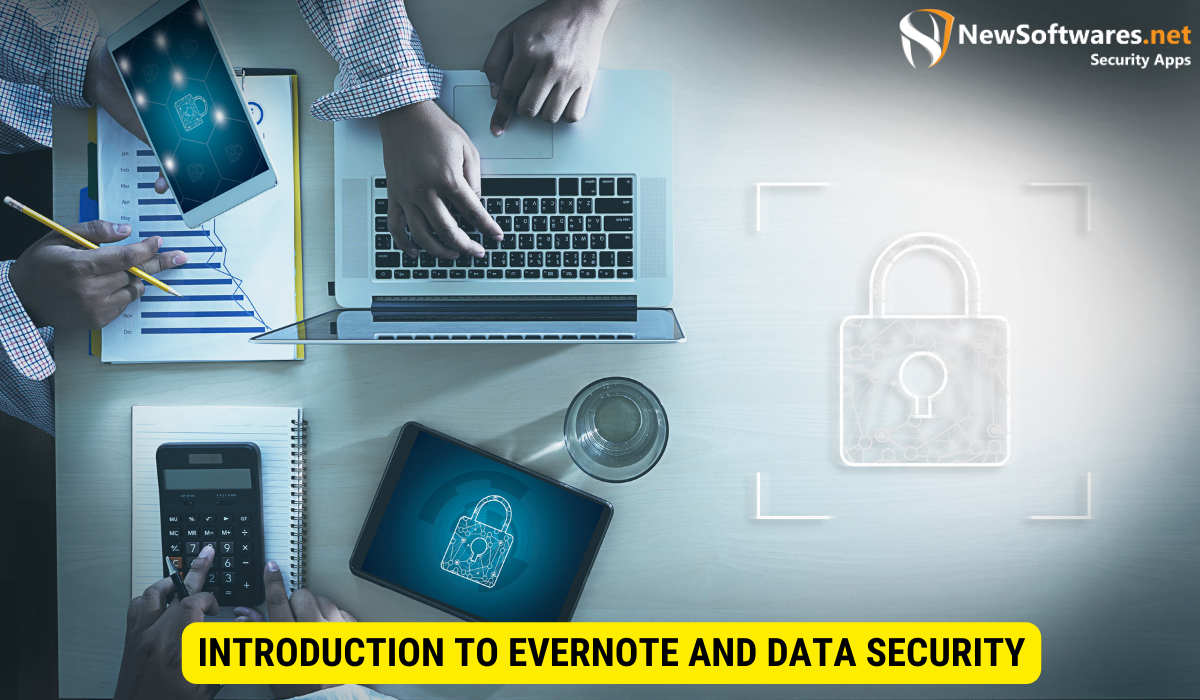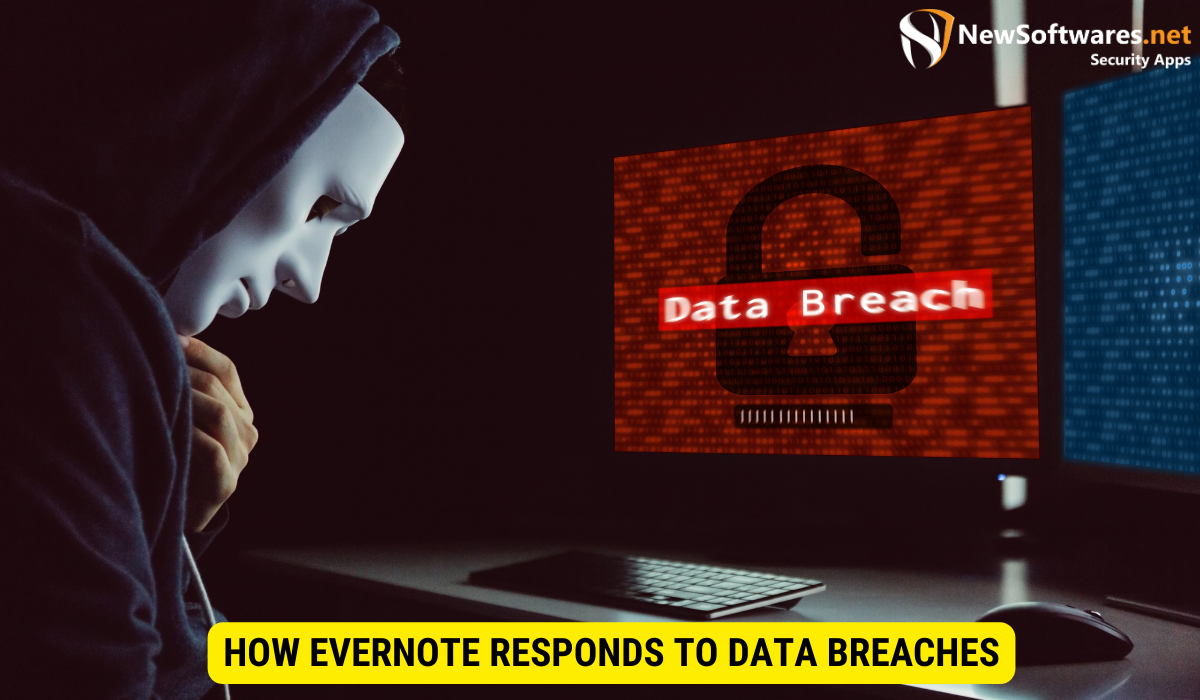Evernote, a digital note-taking service, ensures data security through encryption, two-factor authentication, regular security audits, and strict access control. They prioritize user privacy, comply with global data protection regulations like GDPR and CCPA, and have a clear incident response plan for data breaches.
Evernote is a popular digital note-taking service that has gained the conviction of millions of users worldwide. One of the important concerns for users when it comes to digital platforms is data security. In this comprehensive overview, together we will delve into Evernote’s data security measures, privacy policies, compliance with global data protection regulations, and how they respond to data breaches. By understanding these aspects, users can make an informed decision about using Evernote as their note-taking tool of choice.
Introduction to Evernote and Data Security

Evernote is a robust note-taking platform that allows users to capture, organize, and access their notes across various devices. As more users rely on Evernote to store personal and sensitive information, the importance of data security becomes paramount in ensuring user trust and confidence.
Importance of Data Security in Digital Note-Taking
In the digital age, where data breaches and unauthorized access to personal information have become all too common, it is crucial for users to have confidence that their data is safe and protected. Evernote understands this concern and has conducted a comprehensive set of data security actions to safeguard user information.
One of the key aspects of data security in digital note-taking is encryption. Evernote uses industry-standard encryption algorithms to protect user data both in transit and at rest. This means that even if someone intercepts the data while it is being transmitted or gains unauthorized access to Evernote’s servers, they would not be able to read or decipher the encrypted information.
Another important aspect of data security is access control. Evernote allows users to set up strong passwords and supports two-factor authentication, adding an extra layer of security to prevent unauthorized access. Additionally, Evernote employs strict access controls within their organization, guaranteeing that only authorized personnel have access to user data.
Furthermore, Evernote regularly conducts security audits and assessments to identify and address any potential vulnerabilities. They also stay updated with the newest security best practices and collaborate with industry experts to guarantee that their security measures are robust and effective.
Evernote’s Commitment to Data Security
Evernote takes data security seriously and is committed to protecting user information from unauthorized access. They have a steadfast team of security experts who continually monitor and update their security infrastructure to address emerging threats and vulnerabilities.
In addition to encryption and access control, Evernote also implements measures such as intrusion detection systems, firewalls, and regular backups to further enhance data security. These measures help prevent and mitigate potential risks, ensuring that user data remains safe and available at all times.
Evernote also values transparency when it comes to data security. They provide users with clear and concise information about their security practices and regularly communicate any updates or changes to their security policies. This transparency helps build hope and confidence among users, knowing that Evernote is actively working to protect their data.
Moreover, Evernote complies with relevant data protection laws and rules, ensuring that user data is handled in accordance with the uppermost standards of privacy and security. They have implemented strict data retention policies and frequently review and update their privacy practices to align with evolving legal requirements.
In conclusion, Evernote recognizes the importance of data security in digital note-taking and has implemented a comprehensive set of measures to protect user information. From encryption and access control to regular security audits and transparency, Evernote’s commitment to data security is evident. Users can trust that their individual and sensitive information is in safe hands when using Evernote as their note-taking platform.
The Architecture of Evernote’s Security Infrastructure
Evernote’s security infrastructure is designed to provide a robust protection against potential data breaches and illegal access to user information. It is built on multiple layers of security measures that work together to protect user data.
One of the key components of Evernote’s security system is encryption. All data in transit and at rest is encrypted to ensure that only legal users can access it. Evernote uses industry-standard AES 256-bit encryption, which is considered highly secure.
But what exactly is encryption? In simple terms, encryption is the course of converting information or data into a code to prevent illegal access. It involves using mathematical algorithms to scramble the data, making it unreadable without the correct decoding key. This ensures that even if someone intercepts the data, they won’t be able to make sense of it without the key.
Evernote’s encryption process involves encrypting data both in transit and at rest. When data is in transit, meaning it is being sent from one device to another over the internet, it is encrypted to prevent any potential eavesdropping or interception. This ensures that even if someone manages to intercept the data, they won’t be able to decipher its contents.
Similarly, when data is at rest, meaning it is kept on Evernote’s servers, it is also encrypted. This provides an additional layer of protection in case of a data breach or unauthorized access to the servers. Even if someone accomplishes to gain access to the servers, they won’t be able to access the encrypted data without the decryption key.
In addition to encryption, Evernote also offers two-factor authentication (2FA) as an option for users. Two-factor authentication is an second layer of security that helps protect user accounts even if their passwords are compromised. With 2FA enabled, users are required to provide a confirmation code in addition to their password when logging in to their Evernote accounts.
So how does two-factor authentication work? When a user enables 2FA, they will need to offer a second form of verification, typically a code sent to their mobile, in addition to their password. This means that even if someone manages to obtain a user’s password, they won’t be able to access the account without the confirmation code. This adds an extra layer of sanctuary and makes it significantly more hard for unauthorized individuals to gain access to user accounts.
By combining encryption and two-factor authentication, Evernote’s security infrastructure ensures that user data is well-protected. These measures, along with other security protocols and practices, help safeguard user information and maintain the trust of millions of users worldwide.
Understanding Evernote’s Privacy Policies
Evernote’s privacy policies govern how they collect, use, and disclose user information. It is important for users to understand these policies to ensure that their privacy is protected.
Data Collection and Usage in Evernote
Evernote collects user information necessary to provide their services and improve user experience. This includes data such as notes, tags, notebooks, and device information. However, Evernote does not access the content of user notes unless specifically authorized by the user.
Sharing and Disclosure of Information in Evernote
Evernote respects user privacy and does not sell or rent user information to third parties. They may share user information with trusted service providers who assist in providing Evernote’s services, but only to the extent necessary.
Evernote’s Compliance with Global Data Protection Regulations
In an increasingly interconnected world, Evernote recognizes its responsibility to comply with global data protection rules to ensure the confidentiality and security of user information.
Evernote and GDPR: Protecting European Users’ Data
Evernote is fully committed to compliance with the General Data Protection Regulation (GDPR). They have implemented measures to ensure that user data is handled in accordance with GDPR necessities, providing European users with peace of mind.
Evernote’s Compliance with CCPA: Safeguarding Californian Users’ Data
As part of their commitment to protecting user data, Evernote complies with the California Consumer Privacy Act (CCPA). This means that Californian users have control over their personal information, including the right to know what data is collected and the ability to request its deletion.
How Evernote Responds to Data Breaches?

While Evernote has implemented robust security measures to prevent data breaches, they also have a well-defined incident comeback plan in place to address any potential breaches promptly and effectively.
Evernote’s Incident Response Plan
Evernote’s incident response plan involves a coordinated effort among various teams to identify, mitigate, and recover from any security incidents. This includes conducting thorough investigations, notifying affected users, and taking appropriate actions to prevent future breaches.
Evernote’s Commitment to Transparency and User Notification
In the event of a data breach, Evernote is dedicated to being transparent and providing timely notification to affected users. They understand the importance of keeping users conversant and empowered to take necessary actions to protect their information.
Key Takeaways:
- Evernote prioritizes data security and has implemented multiple measures to protect user information.
- Encryption and two-factor authentication are crucial elements of Evernote’s security infrastructure.
- Evernote’s privacy policies ensure that user information is collected and used responsibly.
- Evernote complies with global data protection regulations, including GDPR and CCPA.
- Evernote has a well-defined incident response plan and is committed to transparency and user notification in the event of a data breach.
FAQs
Is Evernote secure for storing sensitive information?
Yes, Evernote employs encryption and two-factor authentication to protect sensitive information stored on their platform.
Does Evernote comply with data protection regulations?
Yes, Evernote is fully compliant with global data protection regulations, including GDPR and CCPA.
What happens in the event of a data breach?
Evernote has a well-defined incident response plan and is committed to promptly addressing breaches and notifying affected users.
Can Evernote access the content of user notes?
No, Evernote does not access the content of user notes unless explicitly authorized by the user.
Does Evernote share user information with third parties?
Evernote does not sell or rent user information to third parties. They may share information with trusted service providers to deliver their services.
Conclusion
Understanding Evernote’s data security measures is vital for users who want to ensure that their information is protected when using the platform. Evernote’s commitment to data security, encryption, two-factor authentication, privacy policies, compliance with global data protection regulations, and their incident response plan make them a reliable choice for users seeking a secure digital note-taking solution. By being transparent about their security practices and empowering users with control over their data, Evernote upholds their commitment to user trust and security.
